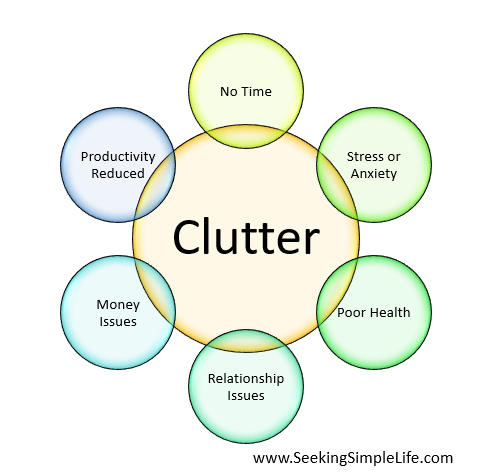In today’s fast-paced world, many people find themselves surrounded by clutter and chaos—both in their physical environments and their mental space. M
In today’s fast-paced world, many people find themselves surrounded by clutter and chaos—both in their physical environments and their mental space. Messy rooms, overflowing desks, and digital overload can lead to stress, decreased productivity, and a general sense of overwhelm.
Understanding the impact of clutter and chaos, and learning how to address it, is essential for improving focus, efficiency, and overall well-being. This article explores the causes, effects, and practical solutions for managing clutter and chaos effectively.
Understanding Clutter and Chaos

1. What Is Clutter?
Clutter refers to an accumulation of items that are disorganized, unnecessary, or difficult to manage. Common examples include:
- Piles of paperwork or bills
- Clothing or personal items left out of place
- Household items without a designated storage space
- Digital clutter such as emails, files, and apps
Clutter can accumulate over time, making spaces feel crowded and chaotic.
2. What Is Chaos?
Chaos goes beyond physical mess—it’s a state of disorder, unpredictability, and lack of control. Chaos can manifest in:
- Overbooked schedules and constant interruptions
- Conflicting priorities or tasks
- Emotional stress and mental overwhelm
- Unpredictable environments that make daily life challenging
When clutter and chaos combine, they create a cycle of disorder that affects both mind and body.
The Effects of Clutter and Chaos
1. Mental Health Impact
Living in cluttered and chaotic environments can increase stress, anxiety, and depression. Studies show that visual and mental clutter can make it harder to concentrate and make decisions.
2. Decreased Productivity
Cluttered spaces often lead to wasted time searching for items, missed deadlines, and inefficient work habits. Chaos in scheduling or task management further reduces productivity.
3. Physical Health Concerns
Messy environments can harbor dust, allergens, and bacteria, leading to health issues. Cluttered spaces may also increase the risk of trips and falls.
4. Strained Relationships
Clutter and chaos can affect interpersonal relationships. Shared spaces become points of contention, and constant stress can lead to tension at home or work.
5. Financial Implications
Disorganization often results in repeated purchases of items already owned, overdue bills, or missed opportunities due to mismanaged resources.
Common Causes of Clutter and Chaos
1. Lack of Organization Systems
Without designated spaces for belongings or structured routines, clutter tends to accumulate.
2. Emotional Attachment
People often hold onto items due to sentimental value, leading to unnecessary clutter.
3. Overcommitment
A packed schedule with too many responsibilities creates chaos in both personal and professional life.
4. Digital Overload
Emails, social media, and digital files contribute to cognitive clutter and can distract from important tasks.
5. Procrastination
Delaying decisions about what to keep, discard, or organize leads to growing clutter and mounting chaos.
Strategies to Combat Clutter and Chaos
1. Declutter Your Physical Space
- Start small: focus on one area at a time, such as a drawer or desk.
- Sort items into categories: keep, donate, recycle, or discard.
- Establish storage solutions: shelves, bins, and labels can help maintain order.
2. Create Organization Systems
- Implement routines for cleaning and tidying regularly.
- Use calendars, planners, or digital tools to organize tasks and appointments.
- Designate specific areas for commonly used items to reduce misplacement.
3. Manage Digital Clutter
- Unsubscribe from unnecessary emails and notifications.
- Organize files into folders and delete duplicates.
- Schedule regular digital maintenance to prevent overwhelm.
4. Prioritize Tasks and Commitments
- Use a to-do list or task management app to track priorities.
- Learn to say no to commitments that add unnecessary chaos.
- Break larger tasks into manageable steps to avoid feeling overwhelmed.
5. Practice Mindfulness and Mental Decluttering
- Take breaks and practice meditation or deep breathing exercises.
- Reflect on emotional attachments to items and consider letting go of what no longer serves you.
- Maintain focus on the present to reduce mental chaos.
Benefits of Tackling Clutter and Chaos
1. Improved Mental Clarity
Reducing clutter allows the mind to focus better, enhancing decision-making and creativity.
2. Enhanced Productivity
Organized spaces and schedules streamline tasks, making it easier to achieve goals efficiently.
3. Better Health
Clean and orderly environments reduce allergens, minimize accidents, and promote overall well-being.
4. Stronger Relationships
Tidy and organized spaces foster a sense of harmony and reduce conflicts in shared environments.
5. Financial Savings
Being organized prevents unnecessary spending, missed bills, and lost items, saving time and money.
Tips for Maintaining Order Long-Term
- Adopt the “One In, One Out” Rule: For every new item brought in, remove an old one.
- Set Regular Decluttering Sessions: Weekly or monthly tidying keeps clutter under control.
- Involve Family or Team Members: Shared responsibility ensures everyone contributes to organization.
- Use Labels and Storage Solutions: Clearly labeled bins and shelves simplify organization.
- Reflect on Habits: Regularly assess whether items or commitments still serve your goals and needs.
When to Seek Help
Sometimes clutter and chaos can feel overwhelming. Professional organizers, productivity coaches, or therapists can help create strategies for managing physical, digital, and mental clutter. Seeking assistance can accelerate the process and provide tools for sustainable organization.
Conclusion
Clutter and chaos are more than just minor annoyances—they have real impacts on mental, physical, and emotional well-being. By understanding the causes and implementing practical strategies, anyone can regain control of their environment and mind.
Whether it’s decluttering your home, streamlining digital files, or managing busy schedules, addressing clutter and chaos is essential for a balanced, productive, and fulfilling life. Taking small, consistent steps toward organization can transform chaos into calm, creating a space that supports clarity, focus, and well-being.


COMMENTS